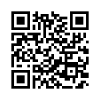BEYOND THE CODE SWITCHING IN WHATSAPP CHATS OF JAVANESE ENGLISH TEACHERS FORUM IN TULUNGAGUNG
Downloads
Abstract:
(Title: Beyond the Code Switching in Whatsapp Chats of Javanese English Teachers Forum in Tulungagung). Code-switching, the alternate use of more than one language in a discourse, is one of the language phenomena that commonly happens in a communication among bilingual or multilingual people. Recently, the rapid development of technology gives significance effect to the way people communicate such as the blurring of the spoken and written distinction happened in whatsapp chats. Although whatsapp chats uses the written medium, the language used is less correct and less coherent than standard written language, making it closer to speech. It also arise code-switching phenomena among English teachers chat. This study aims to seek the teachers' motives of producing code-switching in their utterances. 30 whatsapp chat screenshots were collected to be analyzed. Furthermore, interviews were conducted to obtain more comprehensive motives from the the Javanese English Teacher Forum members. The results show that most of teachers intentionally and consciously made code-switching for the sake of poetic (joke) and phatic functions. None of them employ code-switching for directive function. In addition, from the perspective of psycholinguistics, this phenomenon could be the result of the LTM (Long Term Memory) subconscious effect of the speakers' cultural background.
Keywords: Code switching, Whatsapps chats, Javanese English teacher, poetic function
Downloads
Ahmad, B. H., & Jusoff, K. (2009). Teachers' Code-Switching in Classroom Instructions for Low English Proficient Learners. CCSE Journal, 2(2), 49-55.
Alsaleem, B. I. A. (2014). The Effect of "WhatsApp" Electronic Dialogue Journaling on Improving Writing Vocabulary Word Choice and Voice of EFL Undergraduate Saudi Students. Paper presented at the 21st Century Academic Forum Conference at Harvard, Havard.
Appel, R., & Muysken, P. (2006). Language contact and bilingualism: Amsterdam University Press.
Basir, U. P. M., & Ro'ifah, A. (2015). Adolescents Java Dialectict in Surabaya Bilingual Images and Optional Language Model in Java Community. International Journal of Humanities and Social Science, 5(4), 9.
Bouhnik, D., & Deshen, M. (2014). WhatsApp Goes to School: Mobile Instant Messaging between Teachers and Students. Journal of Information Technology Education: Research, 13, 217-231.
Cárdenas-Claros, M. S., & Isharyanti, N. (2009). Code Switching and Code Mixing In Internet Chatting: Between "˜Yes', "˜Ya', and "˜Si' a Case Study. The JALT CALL Journal 2009: Forums, 5(3), 67–78.
Carter, R. (1997). Investigating English Discourse. London: Routledge.
Church, K., & Oliveira, R. d. (2013). What's up with WhatsApp? Comparing Mobile Instant Messaging Behaviors with Traditional SMS. MOBILE HCI 2013 – COLLABORATION AND COMMUNICATION, 352-361.
Danet, B., & Hering, S. C. (2007). Introduction: Welcome to the multilingual Internet. In B. Danet & S. C. Hering (Eds.), The Multilingual Internet: Language, Culture, and Communication Online (pp. 3-39). New York: Oxford University Press.
Duranti, A. (1997). Linguistic Anthropology. New York: Cambridge University Press.
Fong, C. W. (2011). Functions and Reasons for Code-Switching on Facebook by Utar English-Mandarin Chinese Bilingual Undergraduates. Universiti Tunku Abdul Rahman.
Mahajan, A., Dahiya, M. S., & Sanghvi, H. P. (2013). Forensic Analysis of Instant Messenger Applications on Android Devices. International Journal of Computer Applications (0975 – 8887), 68(8), 38-44.
Myers-Scotton, C. (2006). Multiple Voices an Introduction to Bilingualism. Garsington Road, Oxford, UK: Blackwell Publishing Ltd.
Randall, M. (2007). Memory, psychology and Second Language Learning (Vol. 19): John Benjamins Publishing.
Yletyinen, H. (2004). The Functions of Codeswitching in Efl Classroom Discourse (Graduate), UNIVERSITY OF JYVí„SKYLí„.
Yule, G. (1996). Pragmatics. New York: Oxford University Press.
The authors who publish this journal agree to the following requirements. The author retains the copyright regarding the work being simultaneously licensed below Creative Commons Attribution ShareAlike License.

Jurnal Diksi by Faculty of Languages, Arts, and Culture, Universitas Negeri Yogyakarta is licensed under a Creative Commons Attribution-ShareAlike 4.0 International License.
Based on a work at http://journal.uny.ac.id/index.php/diksi




















